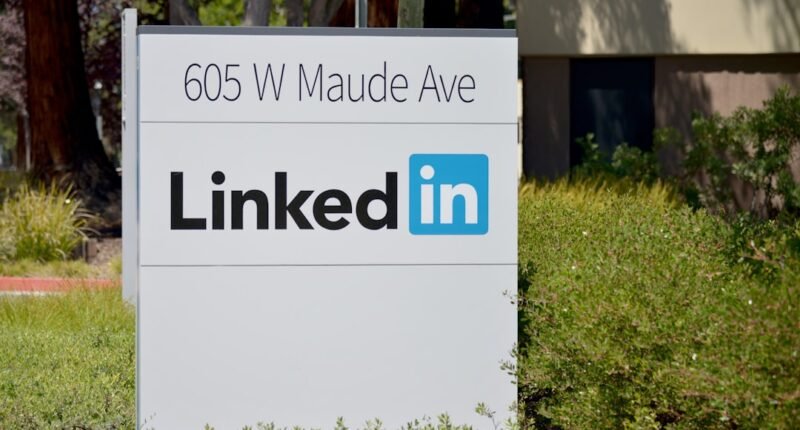Social media marketing agencies are essential for businesses seeking to establish and maintain a robust online presence. These agencies specialize in creating and executing strategic marketing campaigns across various social media platforms, including Facebook, Instagram, Twitter, and LinkedIn. Their primary objectives are to enhance brand awareness, engage target audiences, and drive sales and revenue for their clients.
A key responsibility of these agencies is developing comprehensive social media strategies. This process involves extensive research to understand the client’s target audience, industry trends, and competitive landscape. Based on this analysis, agencies create tailored plans outlining goals, tactics, and key performance indicators for each campaign.
They are also responsible for content creation and curation, social media account management, paid advertising campaign execution, and performance analysis to inform data-driven decision-making. Community management is another crucial aspect of social media marketing agencies’ work. This involves actively engaging with audiences by responding to comments, messages, and mentions, as well as monitoring brand conversations across social media platforms.
Through these interactions, agencies help businesses cultivate loyal and engaged follower communities.
Services Offered by Social Media Marketing Agencies
Social Media Strategy Development
One of the primary services offered by these agencies is social media strategy development. This involves conducting in-depth research to understand the client’s target audience, industry trends, and competitive landscape, and then creating a comprehensive plan that outlines the goals, tactics, and key performance indicators for the social media marketing campaign.
Content Creation and Curation
Content creation and curation is another essential service provided by social media marketing agencies. These agencies are responsible for creating engaging and relevant content that resonates with the client’s target audience. This can include a mix of written content, visual content such as images and videos, as well as interactive content such as polls and quizzes. Additionally, social media marketing agencies also curate content from other sources to keep the client’s social media profiles active and engaging.
Social Media Advertising and Community Management
Social media marketing agencies also offer social media advertising services, which involve creating and managing paid advertising campaigns on social media platforms to reach a larger audience and drive specific actions such as website visits, lead generation, or product purchases. These agencies have expertise in targeting the right audience, creating compelling ad creatives, and optimizing campaigns for maximum return on investment. Furthermore, community management is also a critical service provided by social media marketing agencies, which involves actively engaging with the audience by responding to comments, messages, and mentions, as well as monitoring brand mentions and conversations across social media platforms. By actively participating in these conversations, social media marketing agencies can help businesses build a loyal and engaged community of followers.
Revenue Generation Models for Social Media Marketing Agencies

Social media marketing agencies generate revenue through various models that are based on the services they offer and the value they provide to their clients. One of the most common revenue generation models for these agencies is a retainer-based model. In this model, clients pay a monthly fee for ongoing social media marketing services.
The retainer fee is typically based on the scope of work and the level of service provided by the agency. This model provides a predictable stream of revenue for the agency and allows them to build long-term relationships with their clients. Another revenue generation model used by social media marketing agencies is project-based pricing.
In this model, the agency charges a one-time fee for specific projects or campaigns, such as creating a social media strategy, launching a new product campaign, or managing a special event promotion. This model allows clients to pay for specific deliverables or outcomes, and it gives the agency flexibility in pricing based on the scope and complexity of the project. Performance-based pricing is another revenue generation model used by some social media marketing agencies.
In this model, the agency’s fees are tied to the performance or results of the marketing campaigns. For example, the agency may receive a percentage of the sales generated from a social media advertising campaign or a bonus based on specific key performance indicators such as engagement rate or lead generation. This model aligns the agency’s incentives with the client’s business goals and encourages them to deliver measurable results.
Additionally, some social media marketing agencies also offer a la carte pricing for specific services such as content creation, social media advertising management, or community management. This allows clients to customize their service package based on their specific needs and budget. Overall, revenue generation models for social media marketing agencies are diverse and can be tailored to meet the unique needs of each client.
Client Acquisition and Retention Strategies
Client acquisition and retention are critical aspects of running a successful social media marketing agency. To acquire new clients, agencies often rely on a combination of inbound and outbound marketing strategies. Inbound marketing involves creating valuable content such as blog posts, case studies, and whitepapers that demonstrate the agency’s expertise in social media marketing.
This content can attract potential clients who are searching for solutions to their marketing challenges. Additionally, agencies may also leverage search engine optimization (SEO) to ensure their website ranks well in search engine results pages, making it easier for potential clients to find them. Outbound marketing strategies such as cold outreach, networking events, and industry conferences can also be effective in acquiring new clients.
By proactively reaching out to potential clients and building relationships with key decision-makers, agencies can increase their chances of securing new business opportunities. Referrals from existing clients can also be a powerful source of new business for social media marketing agencies. Satisfied clients are likely to recommend the agency to their network, leading to valuable word-of-mouth referrals.
Once a client is acquired, it’s essential for social media marketing agencies to focus on client retention strategies to ensure long-term success. Building strong relationships with clients based on trust, transparency, and communication is crucial for retaining business. Regular communication with clients to provide updates on campaign performance, industry trends, and new opportunities is essential for maintaining a strong partnership.
Additionally, delivering exceptional results and demonstrating the value of the agency’s services can help solidify long-term relationships with clients.
Key Performance Indicators and Metrics for Success
Measuring the success of social media marketing campaigns is essential for both the agency and its clients. Key performance indicators (KPIs) and metrics are used to evaluate the effectiveness of campaigns and determine the return on investment. Some common KPIs and metrics used by social media marketing agencies include engagement rate, reach and impressions, click-through rate (CTR), conversion rate, cost per acquisition (CPA), return on ad spend (ROAS), and customer lifetime value (CLV).
Engagement rate measures how actively the audience is interacting with the content on social media platforms through likes, comments, shares, and other forms of engagement. A high engagement rate indicates that the content is resonating with the audience and driving meaningful interactions. Reach and impressions measure how many people have seen the content on social media platforms.
These metrics provide insights into the overall visibility of the content and its potential impact. Click-through rate (CTR) measures the percentage of people who clicked on a link or call-to-action within a post or ad. A high CTR indicates that the content is compelling and driving traffic to a website or landing page.
Conversion rate measures the percentage of people who completed a desired action such as making a purchase or filling out a lead form after clicking on a post or ad. This metric directly ties campaign performance to business outcomes. Cost per acquisition (CPA) measures how much it costs to acquire a new customer through social media advertising campaigns.
A low CPA indicates that the campaigns are efficient in driving new customer acquisition. Return on ad spend (ROAS) measures the revenue generated for every dollar spent on advertising. A high ROAS indicates that the campaigns are delivering positive returns on investment.
Customer lifetime value (CLV) measures the total revenue generated from a customer over their entire relationship with the business. This metric helps agencies understand the long-term impact of their marketing efforts on customer retention and loyalty.
Challenges and Opportunities in the Social Media Marketing Industry

Staying Ahead of the Algorithmic Curve
One of the primary challenges faced by social media marketing agencies is staying updated with the ever-changing algorithms and best practices across various social media platforms. As platforms like Facebook, Instagram, Twitter, and LinkedIn continue to update their algorithms and introduce new features, agencies must adapt their strategies to ensure maximum reach and engagement for their clients’ campaigns.
Managing Client Expectations in a Competitive Landscape
Another challenge in the industry is managing client expectations in an environment where competition for attention is fierce. With so much content being published on social media every day, it can be challenging for businesses to stand out and achieve meaningful results from their marketing efforts. Social media marketing agencies must effectively communicate realistic expectations to their clients while also demonstrating their ability to deliver tangible results through data-driven strategies.
Capitalizing on Emerging Opportunities
Despite these challenges, there are also significant opportunities in the social media marketing industry. The rise of new platforms such as TikTok and Clubhouse presents opportunities for agencies to explore innovative ways of reaching audiences through emerging channels. Additionally, advancements in technology such as artificial intelligence (AI) and machine learning are enabling agencies to optimize ad targeting, personalize content at scale, and automate routine tasks, leading to more efficient campaign management. The increasing focus on influencer marketing also presents opportunities for social media marketing agencies to collaborate with influencers to amplify their clients’ brand messages and reach new audiences.
Future Trends and Innovations in Social Media Marketing Agencies
Looking ahead, there are several trends and innovations that are shaping the future of social media marketing agencies. One of these trends is the continued rise of video content across social media platforms. With platforms like Instagram Reels, TikTok, and YouTube gaining popularity, video content has become an essential part of any successful social media strategy.
Social media marketing agencies will need to invest in video production capabilities and develop expertise in creating engaging video content that resonates with audiences. Another trend shaping the future of social media marketing is the increasing importance of personalization. As consumers expect more personalized experiences from brands, agencies will need to leverage data-driven insights to create tailored content that speaks directly to individual preferences and behaviors.
Personalization can help businesses cut through the noise on social media and build stronger connections with their target audience. The integration of e-commerce features into social media platforms is also expected to impact how businesses approach social media marketing in the future. With features like Instagram Shopping and Facebook Marketplace becoming more prominent, social media marketing agencies will need to develop strategies that seamlessly integrate product discovery and purchase opportunities into their clients’ social media presence.
Additionally, ethical considerations around data privacy and consumer trust will continue to shape how social media marketing agencies operate in the future. Agencies will need to prioritize transparency in data collection practices and ensure compliance with regulations such as GDPR and CCPA to build trust with consumers. In conclusion, social media marketing agencies play a vital role in helping businesses navigate the complex landscape of social media platforms to achieve their marketing goals.
By offering services such as strategy development, content creation, advertising management, and community engagement, these agencies help businesses build brand awareness, engage with their audience, and drive revenue. Revenue generation models such as retainers, project-based pricing, performance-based pricing, and a la carte pricing allow agencies to tailor their services to meet each client’s unique needs. Client acquisition strategies such as inbound marketing, outbound outreach, and referrals are essential for growing an agency’s client base, while retention strategies focused on communication and delivering results are crucial for maintaining long-term partnerships.
Key performance indicators such as engagement rate, conversion rate, cost per acquisition, return on ad spend, and customer lifetime value help measure campaign success and demonstrate value to clients. Challenges in the industry include staying updated with platform changes, managing client expectations in a competitive environment, while opportunities lie in exploring emerging platforms like TikTok, leveraging influencer partnerships strategically, embracing video content and personalization trends, integrating e-commerce features into social media strategies, and prioritizing ethical data practices. As technology continues to evolve and consumer behaviors shift, future trends in social media marketing include an increased focus on video content production capabilities, personalized experiences driven by data insights, seamless integration of e-commerce features into social media strategies, and prioritizing ethical considerations around data privacy and consumer trust.
Overall, social media marketing agencies will continue to play a crucial role in helping businesses navigate the ever-changing landscape of social media platforms while embracing new trends and innovations to drive success for their clients in the future.
FAQs
What is a social media marketing agency?
A social media marketing agency is a company that specializes in creating and implementing social media marketing strategies for businesses and brands. These agencies help businesses increase their online presence, engage with their target audience, and ultimately drive sales and revenue through social media platforms.
How do social media marketing agencies operate?
Social media marketing agencies operate by offering a range of services such as social media strategy development, content creation, community management, paid advertising, and analytics. They work closely with clients to understand their business goals and target audience, and then create and execute customized social media marketing plans to achieve those goals.
How do social media marketing agencies generate revenue?
Social media marketing agencies generate revenue through a variety of ways, including charging clients for their services on a retainer or project basis, earning commissions from ad spend on paid social media campaigns, and offering additional services such as social media training and consulting. Some agencies may also earn revenue through affiliate marketing or partnerships with other businesses in the industry.






